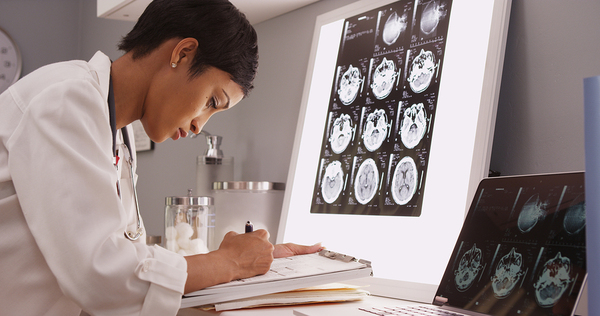Researchers continue to discover the many ways in which the brain and addictive behavior are interlinked. Understanding this connection can be a vital recovery tool for addicts as well as the people who love them. To that end, we’re debuting a three-part series on the brain and addictive behavior, starting with today’s blog: A closer look at how the brain functions.

Our understanding of the connection between the brain and addictive behavior continues to grow.
Getting to Know the Human Brain
Our brains are responsible for everything we do. From involuntary activities like breathing and blinking to voluntary acts like eating and driving, our brains are the driving force: We could do none of these activities without them.
Sums up the National Institute on Drug Abuse (NIDA) of this three-pound mass with the distinction of being the human body’s most complex organ, “In brief, the brain regulates your body’s basic functions; enables you to interpret and respond to everything you experience; and shapes your thoughts, emotions, and behavior.”
Many Functions, Working Together
Despite everything our brains do for us, the layperson’s knowledge of the brain and how it works is limited at best.
For starters, the brain is made up of many parts, each responsible for its own specific functions. “Think about how fast you pull your hand back from a hot stove,” says the Mayo Clinic. “While all the parts of your brain work together, each part is responsible for a specific function—controlling everything from your heart rate to your mood.”
Which begs the question: How do all of these parts communicate? Continues NIDA,
“The brain is a communications center consisting of billions of neurons or nerve cells. Networks of neurons pass messages back and forth among different structures within the brain, the spinal cord, and nerves in the rest of the body (the peripheral nervous system). These nerve networks coordinate and regulate everything we feel, think, and do.”
More specifically, nerve cells communicate with each other via a system of:
- Neurotransmitters—brain’s chemical messengers
- Receptors—brain’s chemical receivers
- Transporters—brain’s chemical recyclers
Explains NIDA, “To send a message, a brain cell (neuron) releases a chemical (neurotransmitter) into the space (synapse) between it and the next cell. The neurotransmitter crosses the synapse and attaches to proteins (receptors) on the receiving brain cell. This causes changes in the receiving cell—the message is delivered.”
The Changing Brain
Recently, researchers have enhanced our knowledge of how the brain changes over time.
“Neuroplasticity—or brain plasticity—is the ability of the brain to modify its connections or re-wire itself. Without this ability, any brain, not just the human brain, would be unable to develop from infancy through to adulthood or recover from brain injury,” says The Conversation.

Drugs interfere with how neurons send, receive, and process information.
While brain plasticity can be a very good thing in many ways, it also factors into the addiction puzzle. According to NIDA, certain areas of the brain, in particular, are susceptible to the addictive nature of drugs, including the:
- Brain stem—responsible for controlling basic functions, including sleeping, breathing, and heart rate
- Cerebral cortex—houses different regions, each responsible for certain functions, including processing sensory inputs, thinking, and decision making
- Limbic system—controls and regulates feelings and emotions
The good news? While neuroplasticity means that drug abuse can change the brain, it also means that the brain can be retrained in treatment. To learn in more detail about how drugs alter the brain, the science of brain rehabilitation, and the role of neuroplasticity in addiction rehab, be sure to check back for the second and third parts of this series.
We’re Here to Help
For more information on addiction recovery St. Louis, meanwhile, contact us at Harris House today.







